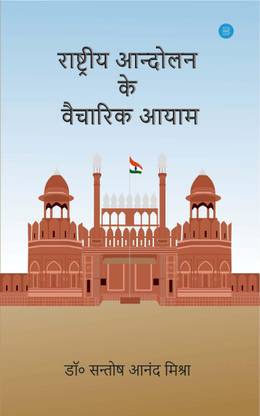D.A.V. Foundation Day (1st June 1886)
Introduction
India is a land of ancient cultural heritage where education has always been regarded as the supreme means of human elevation. Inspired by the ideal of “Sa Vidya Ya Vimuktaye” – knowledge that liberates – the Indian knowledge tradition guided the world toward wisdom, discernment, and peace. However, during colonial rule, the Indian education system suffered deeply. In such a critical time, the Arya Samaj movement led by Swami Dayanand Saraswati, and the D.A.V. (Dayanand Anglo-Vedic) movement that emerged from it, played a crucial role in restoring the soul of Indian education. On 1st June 1886, the D.A.V. institution was founded in Lahore with this mission. Even today, this day is observed as “D.A.V. Foundation Day”, celebrating the ideals of education, service, and culture.
Background of the D.A.V. Movement
In the 19th century, Indian society was plagued by social evils, religious superstitions, and colonial exploitation. Swami Dayanand Saraswati raised his voice against these wrongs and called upon Indians to return to the pure essence of the Vedas. He proclaimed, “The Vedas are the original knowledge of the world and contain solutions to all problems.”
His followers realized that if India were to become truly free and self-respecting, its roots needed to be nourished once again through education. Thus, the educated members of the Arya Samaj founded the D.A.V. College Trust and Management Committee, pledging to provide an education that harmonized modern scientific learning with Vedic values.
Establishment of D.A.V. and the Role of Mahatma Hansraj
The foundation of the D.A.V. movement was laid by Mahatma Hansraj, who, on 1st June 1886, established the first D.A.V. school in Lahore. He became its first principal and served without any salary for the first year, setting a remarkable example of sacrifice and dedication. This year is forever remembered as the “Free Service Year” in Indian education history.
Mahatma Hansraj believed that education was not just about academic learning but the holistic development of human beings—encompassing morality, patriotism, service, and self-awareness.
Educational Philosophy and Unique Features of D.A.V. Institutions
The D.A.V. institutions follow an integrated educational approach. Key features include:
Blend of Vedic and Modern Education: Students are taught Sanskrit, Vedas, Yajnas, yoga, and Indian culture along with modern subjects like science, mathematics, English, and computers.
Moral and Spiritual Learning: Morning prayers, Hawans (Vedic rituals), value education, and community service activities are integral parts of school life.
Patriotism and Social Responsibility: Students are nurtured to become responsible citizens with a deep sense of national pride, environmental awareness, and human values.
Emphasis on Women’s Education: From its inception, the D.A.V. movement has given equal importance to girls' education. Today, thousands of girls study in D.A.V. institutions across the country.
Growth and Expansion of the D.A.V. Movement
From a single school in Lahore in 1886, the D.A.V. movement has grown to become one of India’s largest educational networks:
900+ D.A.V. Schools
50+ Colleges and Professional Institutes
1 University – D.A.V. University, Jalandhar
Institutions established in Nepal, Mauritius, UK, Fiji, and other countries.
D.A.V. alumni have excelled in bureaucracy, education, science, defense, business, and sports, standing as shining examples of nation-builders with character.
Celebration and Significance of Foundation Day
1st June is celebrated in every D.A.V. institution with great fervor. The day serves as a reminder to students and teachers of their responsibilities:
To uphold the dignity of the institution through their conduct and scholarship
To become accountable citizens of society
To follow the ideals of Swami Dayanand and Mahatma Hansraj
Key events on this day include:
Vedic Hawan and Group Prayer
Speeches, Essay & Poetry Competitions on Swami Dayanand and Mahatma Hansraj
Community Service Activities – such as cleanliness drives, tree plantations, and blood donation camps
Cultural Programs reflecting Indian heritage
Conclusion
D.A.V. Foundation Day is not just an anniversary of an institution—it is a revival of the Indian spirit that lies in the Vedas, in culture, in sacrifice, and in service. The D.A.V. movement has proven that education imbued with ethics and culture can uplift both society and the nation.
In today’s fast-paced world dominated by globalization, technology, and materialism, institutions like D.A.V. remind us to return to our roots and inspire us to lead a balanced and meaningful life.
Let this Foundation Day reaffirm our commitment to the vision of Swami Dayanand Saraswati and Mahatma Hansraj, ensuring that this light of wisdom continues to guide India for generations to come.
“Education is a lamp that not only illuminates the intellect but also enlightens the soul — and D.A.V. is the eternal bearer of this sacred flame.”












0 Comments
Thank you